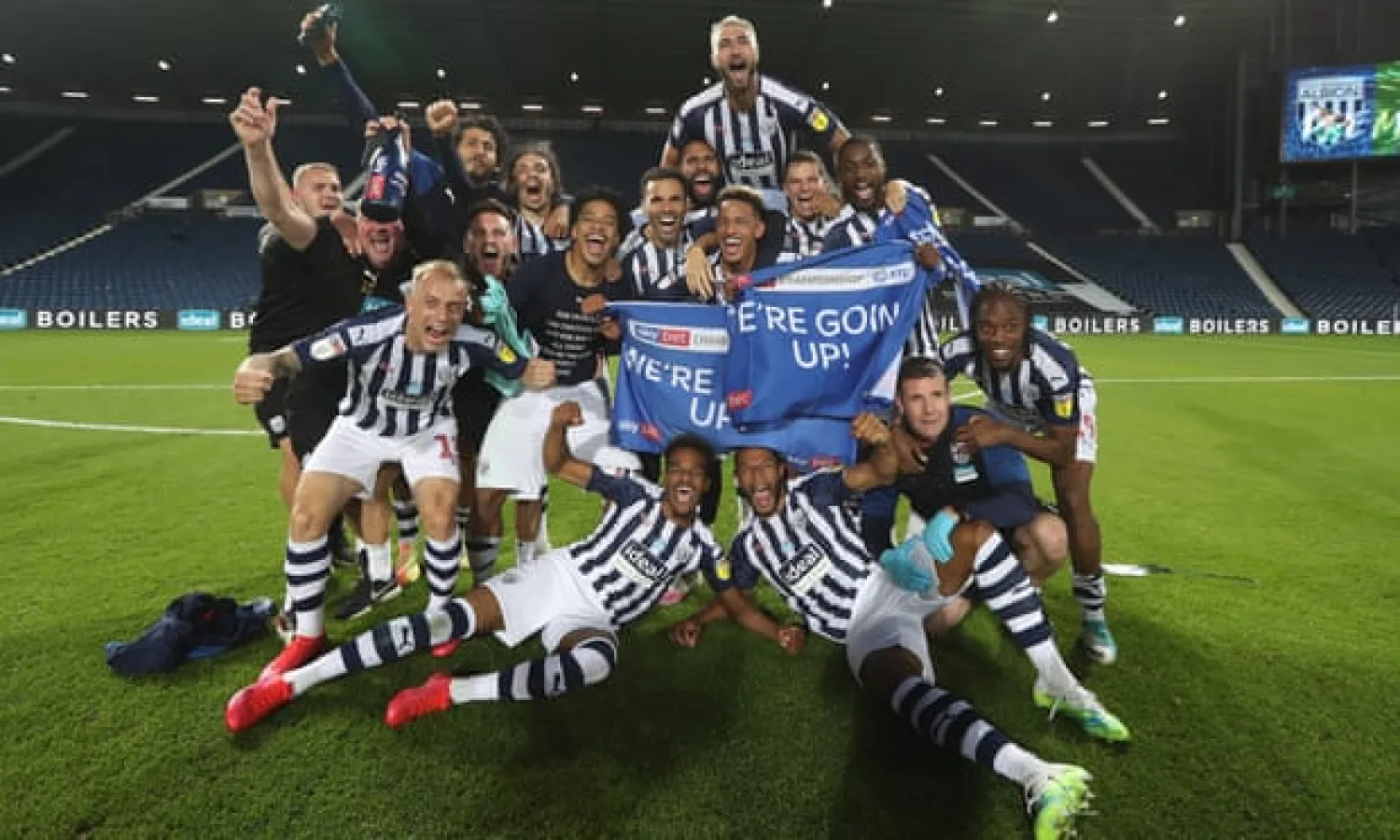My grandad took me to my first football match, on 27 April 1974. West Bromwich Albion drew with Luton Town 1-1. I have been a West Brom supporter ever since. As a kid, it caused me so much pain when we lost that I vividly recall looking forward to growing up, when it surely would not feel as bad. To my shame and discredit, it has got worse, reaching some kind of psychological nadir last week when we were promoted to the Premier League. That is how screwed up the whole thing has become in my head.
If you are not into football you will be as baffled at this nonsense as you will be utterly uninterested in the details of the situation, but please bear with me. I will try to keep it simple: the teams finishing first and second in the Championship are promoted to the Premier League. For most of the season, West Brom were in first or second place. Then, with nine games to play, football stopped for lockdown. It was generally assumed (although not by me) that, if and when it resumed, we would remain in the top two and get promoted.
However, Brentford FC went on an unbelievable run of eight consecutive wins, eventually, inexorably, whittling the gap between them in third, and us in second place, to one miserable point. So, in the 46th and final game of this 11-month season, we had to better Brentford’s score. We were playing QPR; Brentford were playing Barnsley.
The tension became so unbearable that I entered a dead-eyed, near-catatonic state, to the extent that the friend I was with occasionally prodded me to check that I was alive. Disastrously, QPR scored against us; she looked at me in horror, but I registered no emotion. Neither did I register any emotion when Brentford also went a goal down, or when we equalised against QPR, or when we went ahead, or when QPR equalised to make it 2-2, or when Brentford then equalised against Barnsley. If Brentford had then scored again, as seemed inevitable, and we did not, which also seemed inevitable, we would be dropping out of the top two in the final minutes of the final game. I sank lower and lower into a real torpor. Then, incredibly, Barnsley scored and, to the joy of West Brom fans the world over, it was all going to be OK. But I remained emotionless. Seriously, I could not move.
I have a close friend who likes football, but had never really had a team. As he had just moved to Brentford, he adopted them. By the end of the season, this became a problem for us. He attempted some friendly joshing by text, but I was having none of that from anyone, least of all a johnny-come-lately football fan like him. He then sent me a goading text at the final whistle of a critical defeat of my team. I sent him something back so vicious that I can’t share it here. When his team subsequently lost, I did not text him but, before long, he texted me: “I’m done with football. No more. Just look foolish.”
In a matter of a few months he had gone from not being a fan, to a fan, to an emotionally committed fan, to an ex-fan. But setting that aside, I kept looking at the word “foolish”. After 46 years of becoming more and more obsessed with the fortunes of my team, I realised foolish is the right word. Whether winning or losing, I look foolish. It is not foolish to support a football team, but it is decidedly foolish to be so – as psychologists express it – fused with them. It is foolish, and somewhat shaming.
My grocer, Richard, is a passionate Brentford fan of 30 years’ standing. I was worried about him, but when I dropped by to see him, he just smiled and shrugged and said: “That’s football.” He puts me to shame. I want to be more like Richard.
The Guardian Sport









